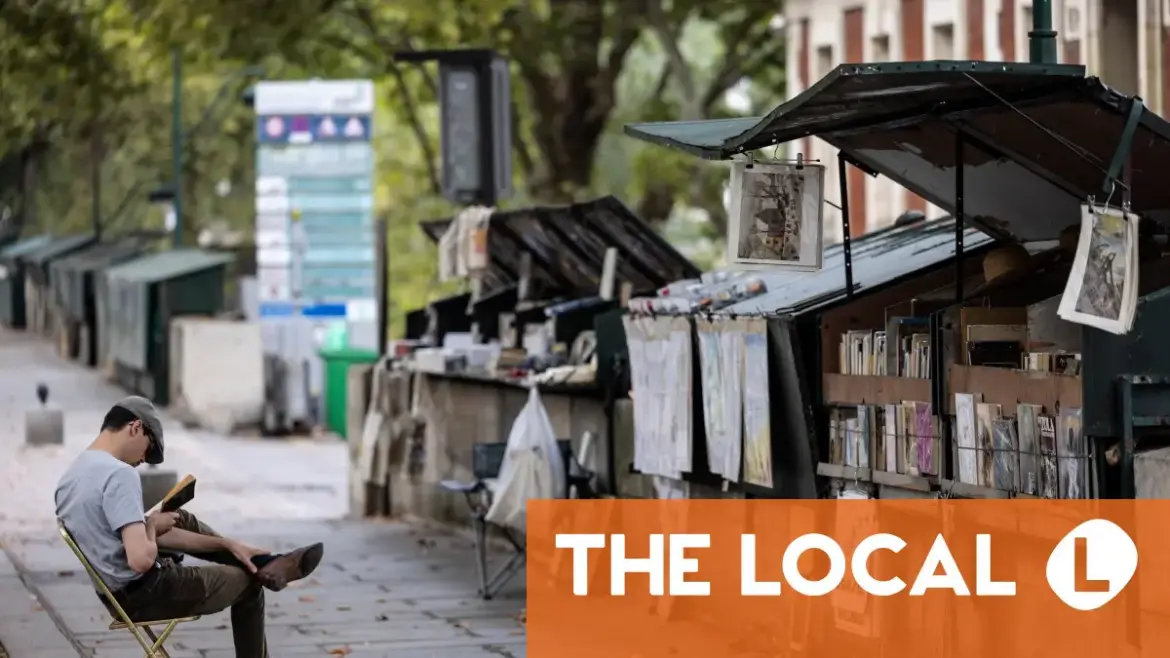From tips to avoid being overcharged at French restaurants to differentiating between ‘grand’ and ‘gros’ plus how France holds onto dying traditions, this week’s La Belle Vie newsletter offers you an essential starting point for eating, talking, drinking and living like a local.
La Belle Vie is our regular look at the real culture of France – from language to cuisine, manners to films. This newsletter is published weekly and you can receive it directly to your inbox, by going to your newsletter preferences in “My account”.
After I read about French daily Le Parisien’s investigation into the ways foreign tourists are taken advantage of at restaurants in tourist areas, I went down something of a rabbit hole.
I spent hours on the Paris Reddit page seeking other horror stories, and it turns out that many of our own readers here at The Local have similar stories of being taken advantage of at restaurants in popular tourist areas.
One reader put it really nicely: “When you want to share the beauty of France with someone and it turns ugly, it’s like watching a loved one fail at something they’re typically good at.”
‘Sad and angry’: How French restaurants rip off tourists
Being ripped off, scammed or taken advantage of is a disturbing experience. While I have been lucky enough to (so far) avoid being pickpocketed in France, I have been pickpocketed while travelling outside of France. The moment I realised my cell phone was missing, I felt a mixture of stupidity, anger and embarrassment.
Readers have shared a few tips to try to avoid being overcharged at French restaurants, and it’s a useful list. Still, try to remember that if this does happen to you, it’s not your fault.
6 tips to avoid being overcharged at a French restaurant
I also think that being assertive in these types of situations can go a long way. If a waiter tries to force you to leave a tip, one reader said, “Ask [him], ‘Isn’t the service complet?’ Then smile and leave. What can he do to you?”
Advertisement
I admit that it is getting harder to avoid American tipping culture in France. It seems with each passing day that more shops and cafés have payment machines that suggest you leave a 15 percent tip.
Luckily, French tipping habits seem to be holding out, and I still see many people leave a few coins on the table.
In many ways, I admire the French ability to uphold long-lasting traditions. Even though it is a dying sector, the city of Paris still boasts one newspaper hawker. His name is Ali Akbar, and he has been shouting headlines in the French capital since the 1970s.
As a millennial, I sometimes wonder if my generation is the last with any connection to real, print newspapers. Every morning, I stepped over the neighbour’s copy of the Baltimore Sun on the way to the bus stop. My grandmother sometimes read to me from the Democrat and Chronicle in Rochester, New York.
Explained: French newspapers, TV and magazines
The newspaper stands and Paris’s last hawker are not the only pieces of a paper tradition that remain part of the city’s fabric.
Any tourist can tell you that one of the magical parts of walking along the Seine is admiring the books, art and trinkets sold by the bouquinistes. They have stood their ground (literally, they fought to stay put during the Olympics) for hundreds of years.
‘Tough, passionate and humble’ – Meet the bouquiniste booksellers of Paris
Some old-fashioned romantic nicknames live on in the French language. I was a bit taken aback a few weeks ago when my friend’s coworker asked me about my chéri. Most people my age ask about my copain (boyfriend) or my compagnon (partner).
Advertisement
Truthfully, I’ve avoided chéri because I just couldn’t figure out when to use it, and it can be awkward to incorporate French nicknames if you don’t fully understand them.
How the French really use Cher and Chérie
Another tricky situation for language learners is figuring out when to use a word that appears interchangeable with another, particularly in spoken, colloquial French.
Both words might even translate into the same word in English, complicating matters even further. The words grand and gros are good examples of this – for instance, the phrases un grand livre and un gros livre do not mean the same thing.
French grammar tips: When to use ‘grand’ and ‘gros’


Dining and Cooking